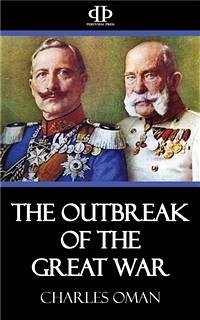AT 10.45 IN THE morning of June 28th, 1914, the Archduke Franz Ferdinand, the nephew and heir of the Emperor Francis Joseph, and his consort, Sophia, Duchess of Hohenberg, were assassinated in the streets of Serajevo, the capital of Bosnia The Archduke had left Vienna on the 23rd June, to carry out, in his capacity of Inspector-General, a series of reviews of the Bosnian garrisons, and to attend their summer maneuvers. He embarked at Trieste on the 24th, upon the new battleship Viribus Unitis, and proceeded on Thursday the 25th in a smaller vessel to Metkovitch in Dalmatia, from whence he took train for Mostar and Hidje; at the latter place he was met by his wife, who intended to accompany him during the rest of his tour of inspection. On Friday and Saturday the 26th and 27th June they witnessed the mountain exercises of some battalions of the XV and XVI Army Corps not far from Serajevo. On Sunday the 28th they took train for that city, for the purpose of visiting it and receiving addresses of welcome from the local authorities. Sunday the 28th June was the feast of St. Vitus, better known as Kossovo Day, the anniversary of the annihilation of the mediaeval Serbian Kingdom by Sultan Murad I in 1389. It had been kept for more than five centuries as a day of public mourning by the Serbians, and by many of their kinsfolk within the limits of the Hapsburg Empire. But in 1914 it was being celebrated at Belgrade and many other places as a national fete for the first time; for the results of Kossovo had just been undone by the victorious Balkan Wars of 1912-13, which had restored Old Serbia and Kossovo itself to the Serbian Kingdom, and had also placed the greater part of Macedonia in the possession of King Peter Karageorgevitch. Many Austrian subjects from Croatia and Bosnia had gone to Belgrade to join in the celebrations. The visit of the Archduke to Serajevo on this particular day was considered inopportune by many the local Serbian paper Narod published a leading article on Kossovo that morning, instead of the obligatory polite tribute to the illustrious visitors. But there was no idea abroad that St. Vitus’ Day 1914 was destined to be as disastrous for the Serbian nation as St. Vitus’ Day 1389. The tour of the Archduke had, up to this moment, been not unsuccessful from the point of view of popularity. Many of the South Slavs among whom he had been moving were not ill-disposed to a prince who, first among his house, posed as a “trialist,” or an advocate of granting equality among the subjects of the Hapsburg Empire to the Slav element as opposed to the Austrian and the Hungarian. It was a new move for a Hapsburg to make himself the advocate of the South Slavs, and a move which had brought him great unpopularity in Hungary, whose national predominance rested upon the suppression of the Slavs and Romanians within her limits...
Bitte wählen Sie Ihr Anliegen aus.
Rechnungen
Retourenschein anfordern
Bestellstatus
Storno









